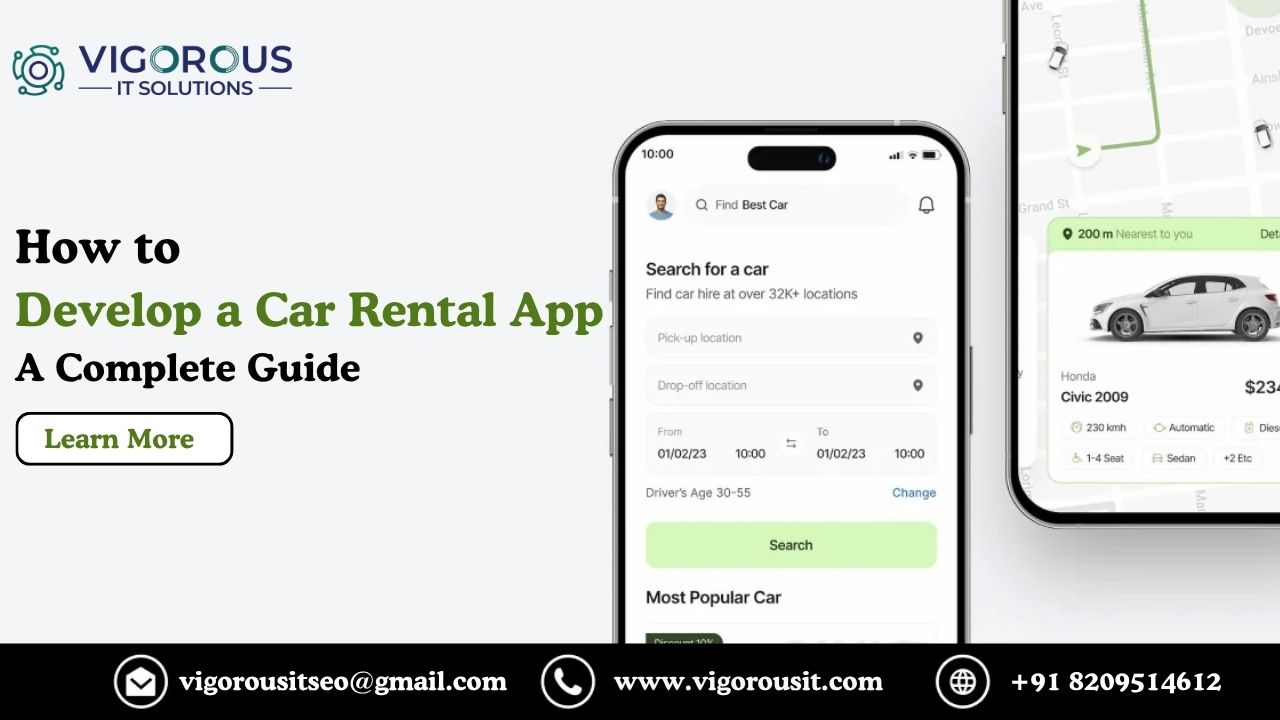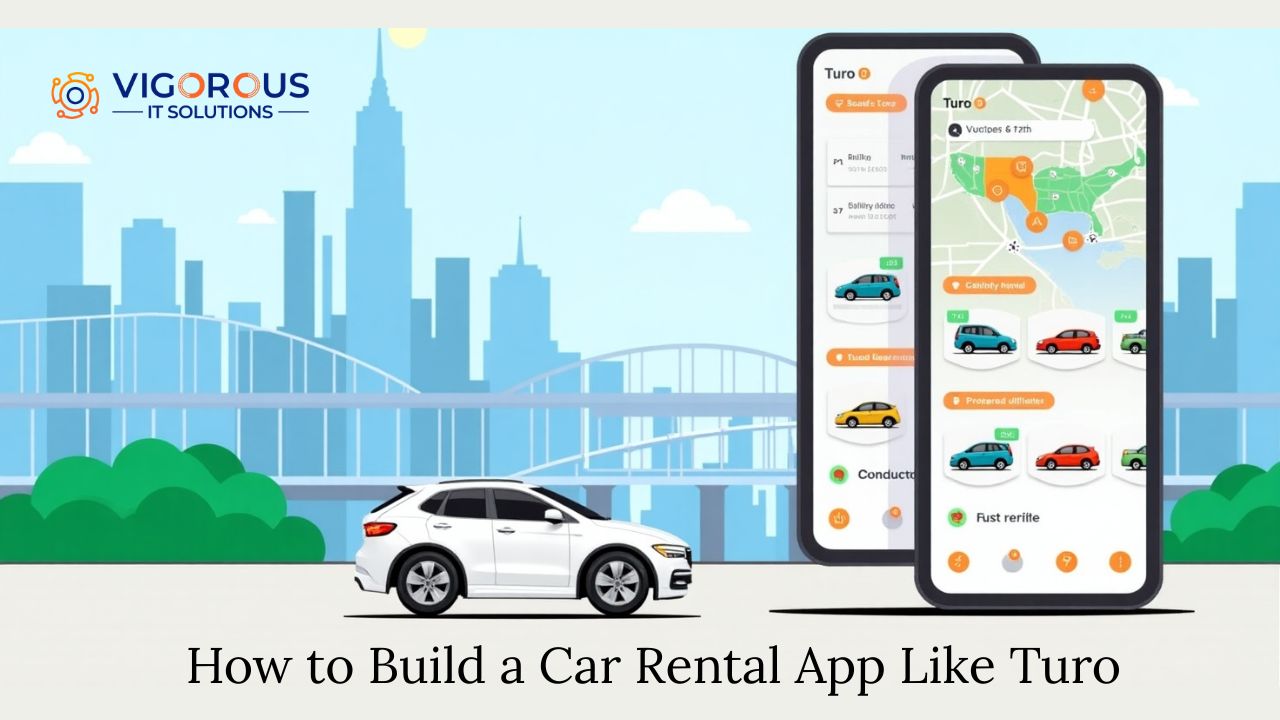How to Develop a Car Rental App: A Complete Guide

Strong 8k brings an ultra-HD IPTV experience to your living room and your pocket.
The demand for easy, on-the-go transportation is growing faster than ever—and the car rental game is no exception. In this ride-hailing era dominated by convenience, car rental apps are making big waves. Think Turo, Zoomcar, or Getaround. Whether it’s a weekend road trip, a vacation ride, or just not wanting to own a car, people love having options right at their fingertips.
So if you're wondering how to develop a car rental app, you're already in the right mindset. This guide will walk you through all the steps—from ideation to launch—plus features, tech stack, and monetization tips.
What is a Car Rental App?
A car rental app is a digital platform that allows users to rent vehicles for personal or business use. It eliminates the need to visit a rental office by offering real-time availability, pricing, vehicle options, and seamless payment through a mobile app or web interface.
Apps like Zoomcar, Turo, Hertz, and Getaround have proven that the car rental market is booming. With the right features and tech stack, your car rental app can capture this growing demand.
For Free Consultation
Contact: +91 82095 14612
Mail: [email protected]
Visit: www.vigorousit.com
Why Build a Car Rental App?
First, let’s answer the “why” before the “how.”
- Market Boom: The global car rental market is projected to hit over $140 billion by 2028.
- Zero Ownership Trend: More people are moving away from buying cars, especially Gen Z & millennials.
- Flexible Revenue Models: Commission, subscriptions, partnerships—there are many ways to monetize.
- Eco-Conscious Users: Apps with EV rentals or shared rides gain bonus points in today’s green economy.
- Long story short: the demand is hot, and the opportunity is wide open.
Step-by-Step Guide to Car Rental App Development
Car rental app development requires a smart approach combining strategic planning, user-centric design, and advanced technology. Here’s a 6-step guide to help you build a robust and successful car rental application:
Step 1: Market Research & Business Model Selection
Start by analyzing your target audience, competitor apps (like Turo, Zoomcar, Getaround), and current market trends. Decide your business model: self-owned fleet, aggregator platform, or peer-to-peer rentals. This step defines the app’s direction, target demographics, and core features.
Step 2: Feature Planning & App Architecture
Map out key features for different user roles—customers, car owners, and admins. Essential features include car browsing, booking, secure payments, user profiles, GPS tracking, and real-time availability. Decide whether to build a native, hybrid, or cross-platform app, and plan the app's structure accordingly.
Step 3: UI/UX Design
Focus on crafting a sleek, intuitive interface that delivers seamless user experiences. A clutter-free layout, fast load times, and clear CTAs (e.g., Book Now, Pay Later) are crucial. Tools like Figma or Adobe XD help design prototypes and user journeys before development.
Step 4: App Development & API Integration
Develop both front-end (user interface) and back-end (server, database) using scalable technologies like Flutter, Node.js, and MongoDB. Integrate essential APIs for maps (Google Maps), payments (Stripe, Razorpay), authentication, and notifications to enhance app functionality.
Read Also: Guide To Develop A Car Rental App Like Turo In 2025
Step 5: Testing & Quality Assurance
Conduct thorough testing to ensure bug-free performance. Run manual and automated tests to validate features, speed, UI responsiveness, and security. Address any glitches before going live. QA tools like Selenium and Appium are widely used in this phase.
Step 6: Launch & Post-Launch Maintenance
Deploy your app on the Play Store, App Store, and web dashboard (if applicable). Post-launch, keep the app updated with new features, monitor performance, and resolve user feedback. Regular maintenance helps your app stay competitive and user-friendly.
How Much Does It Cost to Develop a Car Rental App?
The cost to develop a car rental app typically ranges between $30,000 to $75,000, depending on features, platforms (iOS, Android), and development type (native, cross-platform, or hybrid). Apps integrated with advanced tech like AI-powered chatbots, dynamic pricing, and license recognition can push costs beyond $100,000, but they offer better automation and user experience. Developer location also impacts cost—developers in the US or Europe may charge $100–$150/hour, while firms in budget-friendly regions offer more affordable rates. Post-launch costs like maintenance, updates, and support also play a role. Building an MVP can help reduce initial investment while still validating your app idea.
Learn more: Top 10 Best Car Rental Apps in India for 2025
Final Thoughts
Building a car rental app isn’t just trendy—it’s smart business. With the right features, tech, and market positioning, you can tap into a booming industry that’s here to stay. Just remember: user trust, seamless experience, and smart monetization are your best friends in this journey.
Whether you're building a Turo-like platform or a city-based fleet rental app, go all in—and drive the future of car rentals.
Note: IndiBlogHub features both user-submitted and editorial content. We do not verify third-party contributions. Read our Disclaimer and Privacy Policyfor details.







